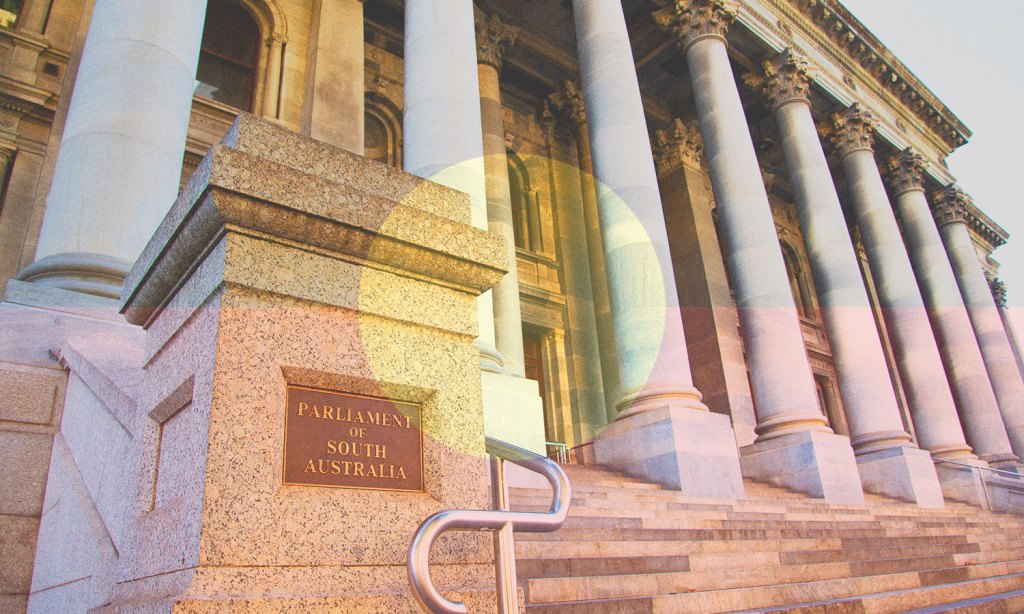Anyone wondering exactly what an Indigenous Voice to Parliament would look like simply needs to turn to South Australia. ‘Cause SA has become the first state to create an Indigenous Voice to Parliament, after legislation passed the House of Assembly in a special session on Saturday.
The Governor Frances Adamson proclaimed this legislation in a public ceremony in front of Parliament House in Adelaide. He was greeted by a cheering crowd.
“There are no more powerful deeds than South Australia becoming the first place in our nation to pass a law enshrining an Indigenous Voice to our parliament,” SA’s Premier, Peter Malinauskas said.
“Who knows how we might benefit from drawing on 65,000 years of wisdom.
“I firmly believe that there are more than a few things that this parliament can learn from the longest-living continuous culture.”
The legislation was introduced by SA’s Aboriginal Affairs Minister and Attorney General, Kyam Maher. It was guaranteed to pass after the ruling Labor Party were able to secure the support of the Greens in January. This gave them a majority in the Legislative Council.
“It’ll be the first in Australia, so it’ll be very historic that, for the first time, there will be a body like this that is elected, that will form a Voice to Parliament, a body that is chosen from Aboriginal people, by Aboriginal people,” Maher has previously said.
The legislation replicates what is hoped to be achieved at the national level with a referendum later this year. However, South Australians did not have to vote on the change. Labor went to the polls last year with an Indigenous Voice on their manifesto, and the South Australian Constitution does not require a referendum to change, unlike the Federal Consitution. What’s more, if the national vote flops, it won’t affect what SA has already done.
Maher has said that the Voice is likely to be up and running by the end of this year, with a vote for who will sit in the Voice expected to be held later this year.
How Will the Indigenous Voice to Parliament Work?
The Voice, at both the state and federal levels, is an advisory body. It doesn’t have any legislative power, meaning it can’t create or block laws. It will only advise on proposals and topics that overwhelmingly affect First Nations people.
In South Australia, the Voice will be made up of a gender-balanced 40 elected Local Voice representatives, 12 of whom will form a State Voice that can speak on any Bill in Parliament.
The SA Government has described it as “a strong and direct line of communication for First Nations peoples to South Australia’s Parliament”.
The State Voice will take advice from the Local Voice, who in turn speak to local Indigenous people and organisations about issues they have. The State Voice will be allowed to attend a minimum of two cabinet meetings per year, will give an annual address to Parliament, and will provide reports, questions, and advice to ministers about their department’s policies and budgets.
After the initial election of these 40 members this year, Voice leaders will be elected once every four years at the same time that state elections are held.
Malinauskas said in November that his state was “leading the nation with a Voice to Parliament in the true sense of the word”.
“It’s time Aboriginal people have the ability to express their hopes and aspirations for their people in the state’s supreme decision-making body, and that means speaking on the floor of Parliament itself”.
Related: Why the Indigenous Voice to Parliament Isn’t Going to Be as Straightforward as You Think
Related: “History Is Calling, Let’s Get This Done”: It’s Time for a First Nations Voice in Parliament
Read more stories from The Latch and subscribe to our email newsletter.







